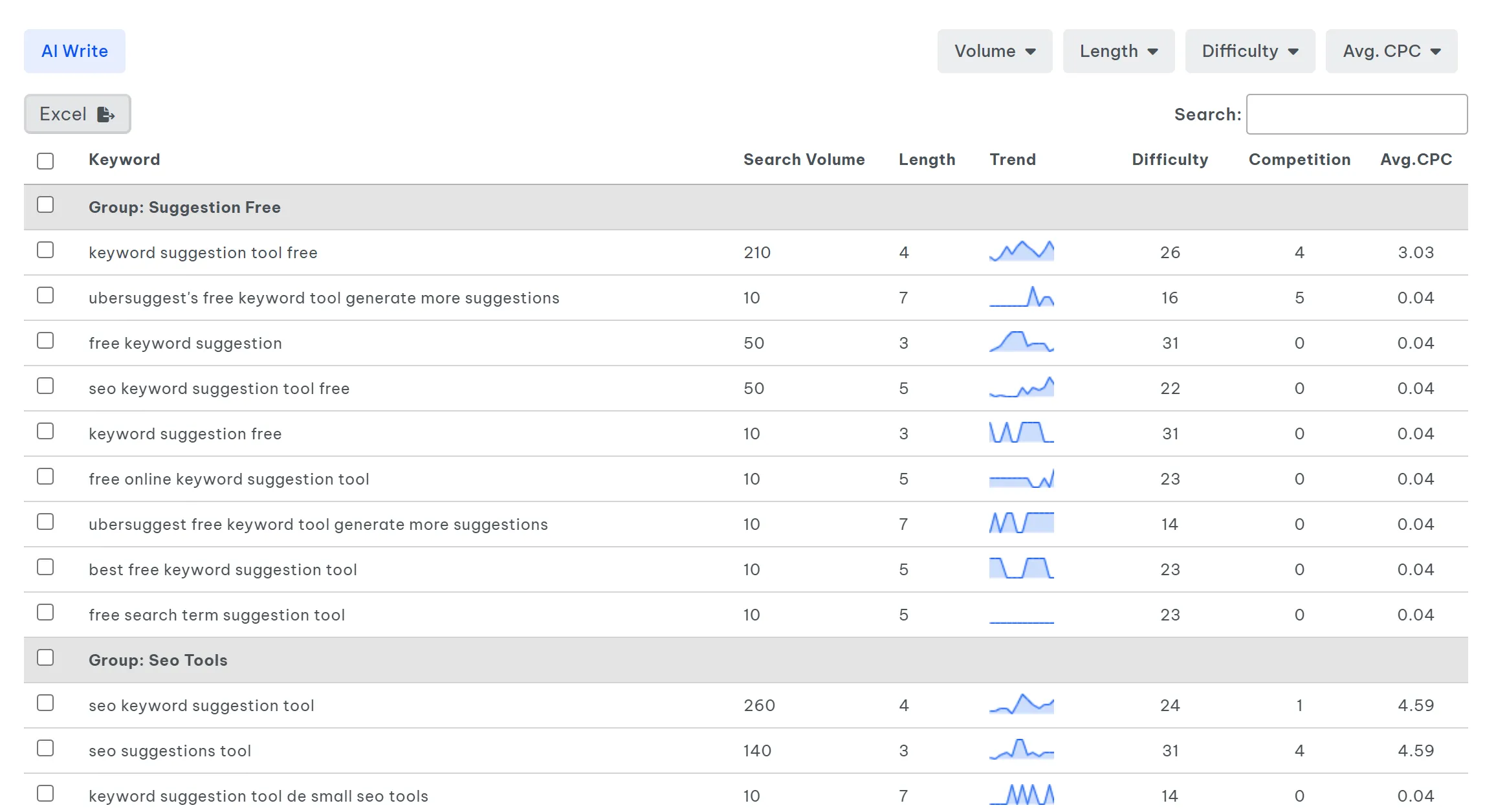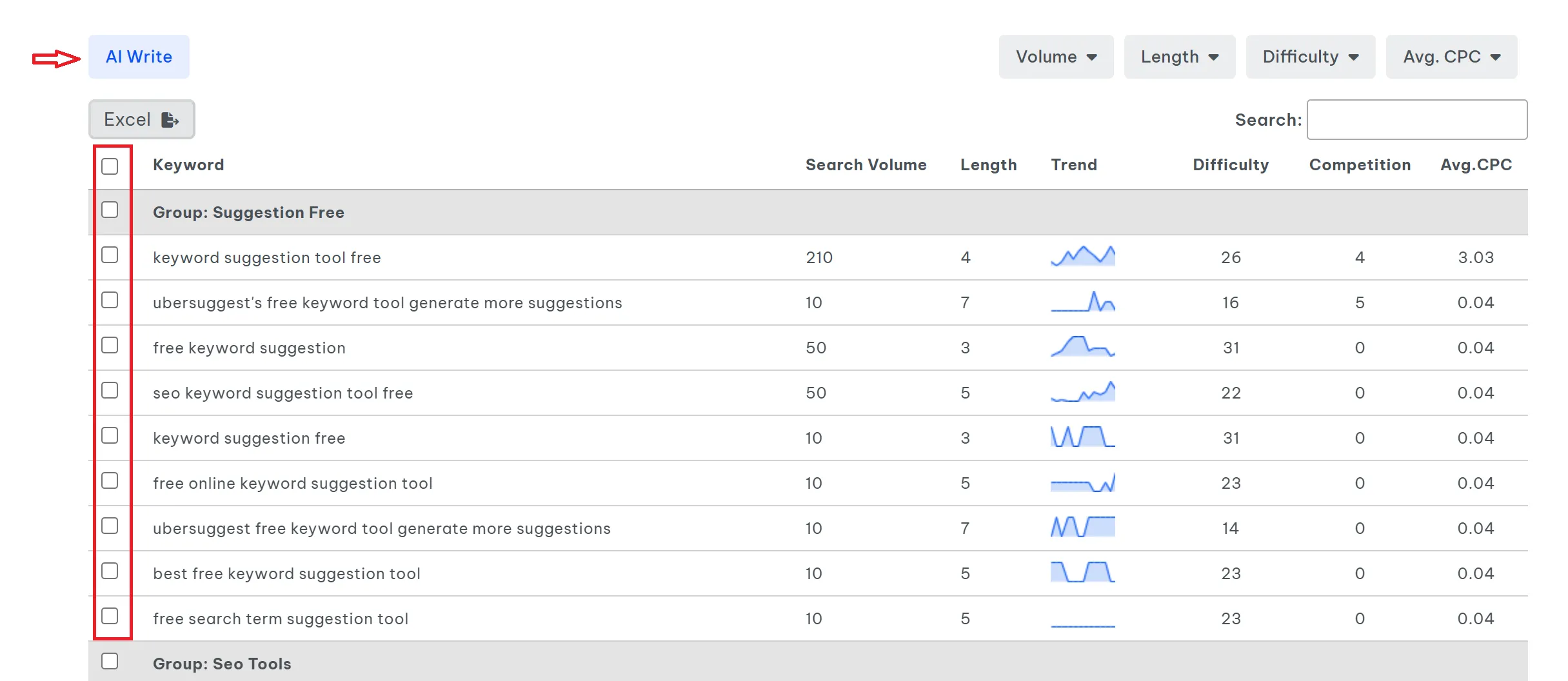Discover the benefits of using a free keyword grouper tool, learn how to effectively use it for grouping keywords into categories, and find the top free keyword grouper tools in 2023. Explore key features to look for, best practices, and understand how these tools improve SEO. Also, compare paid and free options while being aware of the limitations. Get valuable tips for efficient keyword grouping with a free tool.
What is a AIKTP free keyword grouper tool?

The AIKTP Free keyword grouper tool is a software or online tool that helps organize and categorize keywords based on their relevance or similarity. It allows users to input a list of keywords, and then the tool automatically groups them into clusters or categories based on common themes or topics. This can be helpful for SEO (Search Engine Optimization) purposes, content planning, or organizing keyword research data. The tool typically analyzes the keywords and uses algorithms or natural language processing techniques to group them together, making it easier for users to understand and manage large sets of keywords efficiently.
How to use AIKTP free keyword grouper tool?
To use a free keyword grouper tool, follow these steps:
Open the aiktp keyword grouper tool in your web browser. Enter or paste your keywords into the tool’s input field. Make sure each keyword is on a separate separated by commas.

Click on the “Suggestion” button. Wait for the tool to process your keywords. This may take a few seconds or longer, depending on the size of your keyword list.

The AIKPT tool recommends additional keywords that are related to the ones you provide. You have the option to select more keywords for grouping purposes.
Once the grouping is complete, review the results. The tool will typically display the grouped keywords either in separate clusters or with labels representing each group.

Analyze the keyword groups and identify common themes or patterns within each group. This can help you understand the relationships between keywords and uncover potential content ideas or SEO strategies.
Within every category of keywords, comprehending the information is facilitated as it includes details such as volume, complexity, length of the keyword, average cost per click (CPC), and the level of competition.
By selecting the checkbox located at the top of each group, you can utilize keyword groups to prompt the AI in writing blog posts on your behalf.

After clicking the AI Write button, a dialog box will emerge.

Use this dialog box to ask the AIKPT AI engine to write the content for you.
Remember to explore any additional features or options offered by the keyword grouper tool you choose, as they may provide more insights or customization options to suit your specific needs.
Benefits of using a free keyword grouper tool
A free keyword grouper tool can provide several benefits:
- Organization: It helps categorize and group keywords based on their relevance or similarity, making it easier to manage and analyze large sets of keywords.
- Efficiency: By automating the grouping process, a keyword grouper tool saves time and effort compared to manual sorting and categorization.
- Insights: Grouping keywords allows you to identify patterns, themes, and trends within your data, providing valuable insights for search engine optimization (SEO) and content creation strategies.
- Content Planning: With well-organized keyword groups, you can plan your content strategy more effectively by targeting specific topics or themes that align with user intent and search demand.
- Competitive Analysis: By grouping keywords, you can compare your keyword sets with those of your competitors, gaining a better understanding of their strategies and identifying potential opportunities.
- Improving Ad Campaigns: For pay-per-click (PPC) advertisers, a keyword grouper tool can aid in structuring and optimizing ad campaigns by grouping keywords into relevant ad groups for better targeting and higher click-through rates.
- Enhanced SEO: Keyword grouping contributes to improved website optimization. It enables you to identify gaps or areas with limited content coverage, allowing you to create comprehensive and relevant pages that satisfy user queries.
- Scalability: As your keyword list grows, a keyword grouper tool facilitates managing and scaling your keyword research efforts efficiently.
Overall, a free keyword grouper tool can help you streamline keyword organization, gain valuable insights, optimize your content and advertising strategies, and improve overall search performance.
Top Other free keyword grouper tools in 2023
Some of the top free keyword grouper tools in 2023 include:
- Google Keyword Planner: This popular tool by Google allows you to enter a list of keywords and group them based on relevance and search volume.
- Ubersuggest: Ubersuggest provides keyword grouping functionality along with other SEO features, allowing you to organize your keywords effectively.
- Keyword In: This tool offers keyword grouping capabilities, helping you categorize and cluster your keywords for better organization and analysis.
- Keyword Tool: With its keyword grouping feature, this tool enables you to generate keyword ideas and group them into relevant categories.
- Keywords Everywhere: Although primarily known as a keyword research tool, Keywords Everywhere also offers basic keyword grouping functionality to help you organize your keywords.
Please note that the availability and features of these tools may change over time, so it’s recommended to check their respective websites for the most up-to-date information.
Tips for efficient keyword grouping
To efficiently group keywords using a free tool, follow these tips:
- Start with a brainstorming session: List all relevant keywords related to your topic or business. Include variations, synonyms, and related terms.
- Identify main categories: Analyze the keywords and look for common themes or topics. Group keywords that share similar concepts or intent.
- Utilize keyword research tools: Use free keyword research tools like Google Keyword Planner, Ubersuggest, or AnswerThePublic to expand your list and discover additional related keywords.
- Analyze search volume and competition: Evaluate the search volume and competition level of each keyword. Focus on keywords with moderate to high search volume and manageable competition.
- Consider user intent: Classify keywords based on user intent, such as informational, navigational, or transactional. This helps in aligning your content strategy accordingly.
- Leverage keyword grouping features: Many free keyword research tools offer features for organizing and grouping keywords. Take advantage of these features to create separate groups or clusters for different keyword categories.
- Prioritize high-value keywords: Identify keywords that have higher relevance, search volume, and conversion potential. Place them in priority groups to focus your efforts on optimizing for those keywords first.
- Refine and iterate: Continuously refine your keyword groups based on performance data and feedback from your target audience. Experiment with different combinations to improve targeting and effectiveness.
Remember, efficient keyword grouping is crucial for organizing your SEO strategy and optimizing your content for better visibility and relevancy.
Leave a Reply